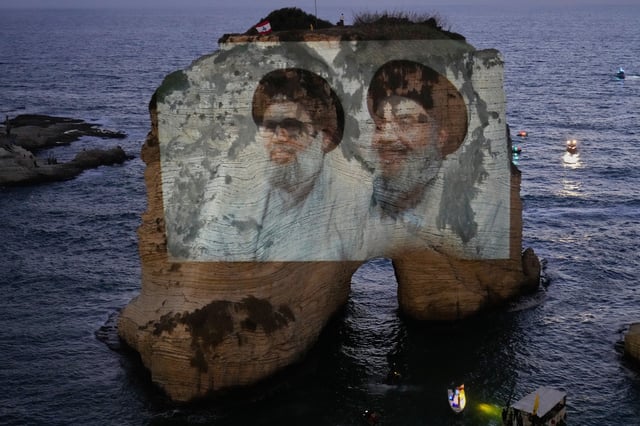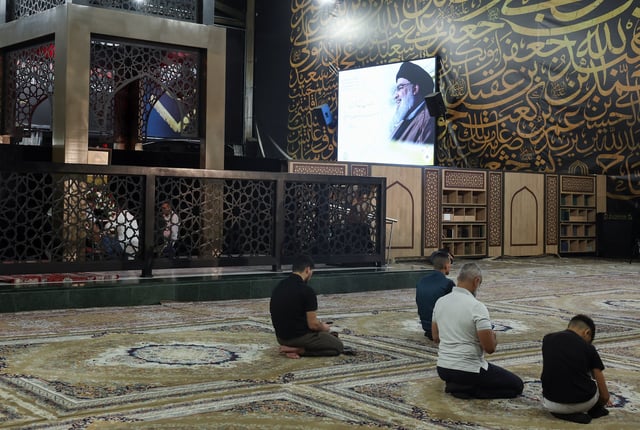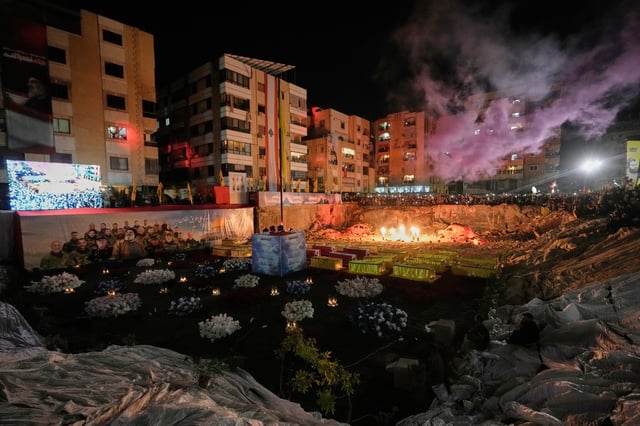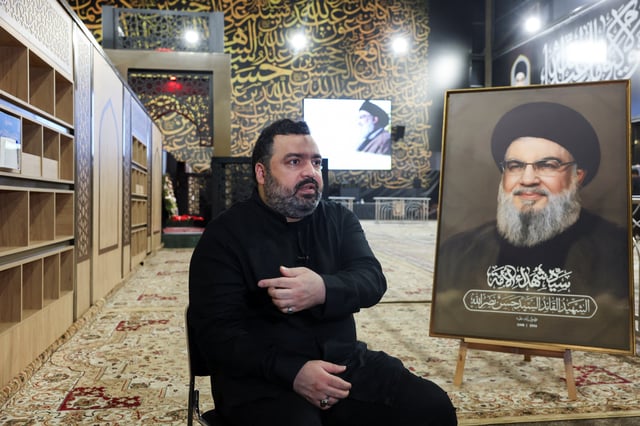Overview
- Supporters were set to gather in strongholds across Beirut and southern and eastern Lebanon as Secretary-General Naim Qassem prepared to address the anniversary.
- Senior Hezbollah figure Mohammed Fneish said the group refilled key posts and maintained operations, while an Israeli military official said its influence has declined, the risk of a large-scale attack is low, and limited rebuilding is underway.
- Lebanon’s government has pledged to pursue disarmament by year-end, a move Hezbollah rejects, with Hassan Nasrallah’s son Jawad reiterating that the group will not surrender its weapons.
- Beirut authorities condemned Hezbollah’s unauthorized projection of Nasrallah and Hashem Safieddine portraits onto the Raouche sea rocks, reflecting heightened tensions over symbolic displays.
- The 2024 escalation began with Israel detonating pagers and walkie‑talkies and airstrikes that killed more than 4,000 people across Lebanon, as the later fall of Syria’s Assad cut supply routes and Israel reports funding strains even as U.S. envoy Tom Barrack claims significant financing persists.



